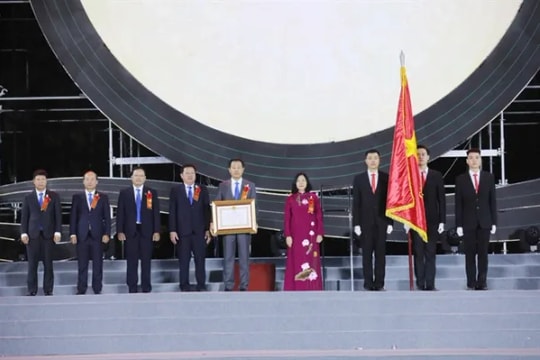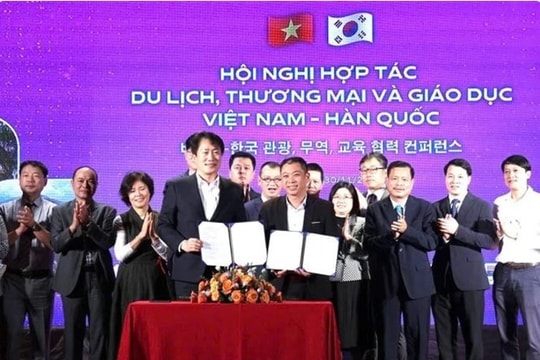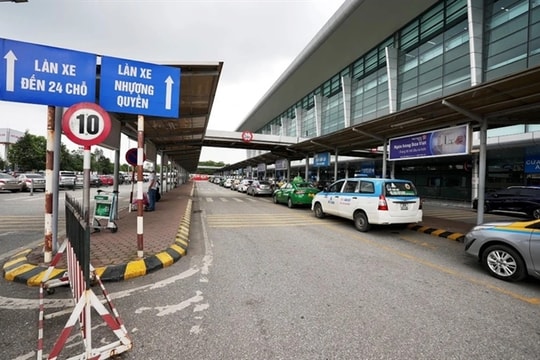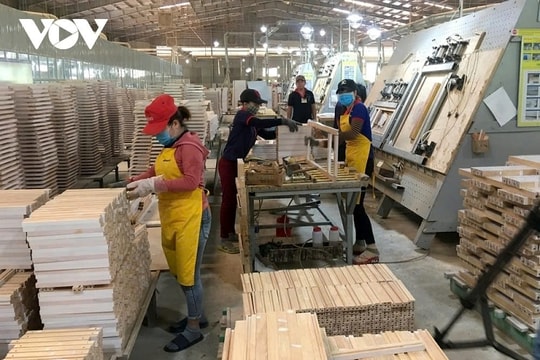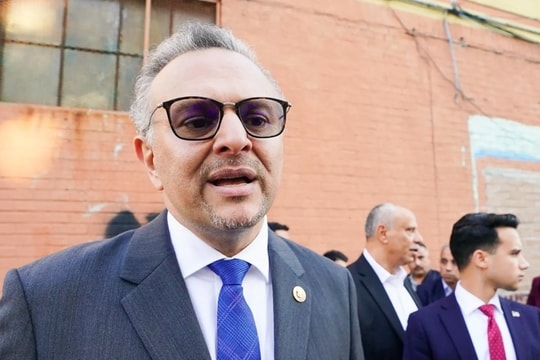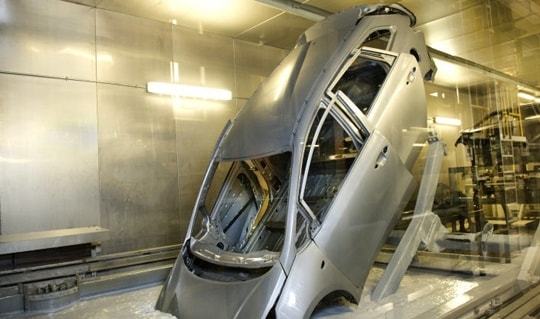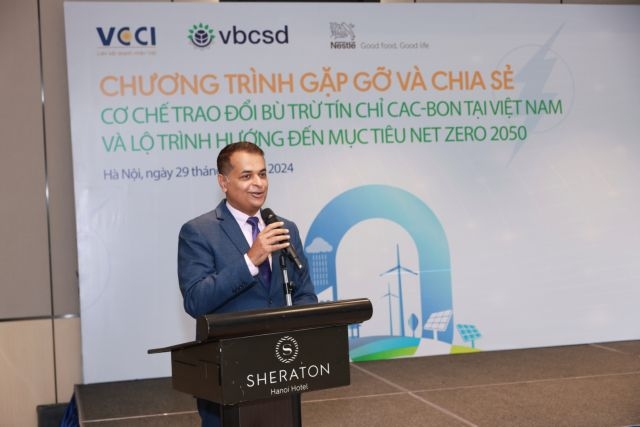
With a focus on the country's net zero 2050 target, the event provided an opportunity to assess both the carbon credit mechanism and Vietnam's broader strategy for addressing climate change.
Binu Jacob, co-chairman of the Business Council for Sustainable Development (VBCSD) and general director of Nestlé Vietnam, stressed that climate change is a global challenge that requires immediate and decisive action. He emphasised that for Nestlé, sustainable development is not merely a strategy but a core business value.
“Climate change is one of the most pressing challenges we face, posing significant risks to our business and the planet, he said.
"Immediate and decisive action is crucial, along with compliance with relevant regulations. At Nestlé, sustainability is part of our DNA and an integral part of our long-term business strategy.
“Nestlé Vietnam is proud to be at the forefront of this movement. We have implemented comprehensive strategies to reduce our carbon footprint, from optimising our supply chain to investing in renewable energy.
“We’ve implemented numerous initiatives, including optimising our supply chain, investing in renewable energy, and encouraging strong cooperation across our value chain to meet emission reduction targets.
"Reducing emissions is a collective effort - success requires the involvement of the entire value chain, especially from pioneering enterprises in sustainability."
Nguyen Quang Vinh, vice president of VCCI and VBCSD’s Chairman highlighted the growing role of businesses in sustainable development, particularly in the context of globalisation. Industry giants like Nestlé, Coca-Cola, and Vinamilk have already embraced science-based emission reduction targets, going beyond compliance to lead the way.
Identifying carbon emissions and implementing offset measures are not just urgent environmental necessities - they are vital for businesses to thrive in the green economy.
He added that it is vital for collaboration between the business sector and Government agencies to minimise biodiversity loss and ensure a balance between economic growth and environmental protection.
Nguyen Dinh Tho, director of the Institute of Strategy and Policy on Natural Resources and Environment (ISPONRE), said the carbon market is a tool for emissions reduction and financial growth for developing countries.
While developed countries pledged US$300 billion annually to support developing nations at COP29, the actual demand is estimated at US$2.4 trillion per year through 2035. For Vietnam, mobilising sufficient funding for its sustainable development goals remains a significant challenge.
This challenge is amplified by the underutilisation of key industries, like textiles and garments, which are incurring losses due to failure to meet green standards. Additionally, Vietnam’s technological and human resource capacities in the climate sector are not yet fully equipped to meet the demands of carbon credit trading.
As a result, there is an urgent need for enhanced training and preparation for carbon credit reporting and trading, expected to begin piloting in 2025 and become mandatory by 2030 for large-emitting companies.
Nguyen Thanh Cong, deputy head of the Department of Climate Change Economics and Information at the Ministry of Natural Resources and Environment, provided further insight into Vietnam’s carbon market roadmap.
The market will feature two components: a compliance market based on government-issued emission quotas and a voluntary market where businesses invest in green technologies to generate carbon credits.
During the pilot phase, set to involve about 150 large emission facilities, businesses will be exempt from emission quotas. However, they will be allowed to use up to 20% of their carbon credits to offset these quotas.
To maximise the potential of the carbon credit exchange mechanism, he said that Vietnam must develop a clear policy framework, foster international cooperation, and raise business awareness of the market’s role. Only through these efforts can Vietnam fully leverage the opportunities provided by the carbon market in its pursuit of sustainable development.



